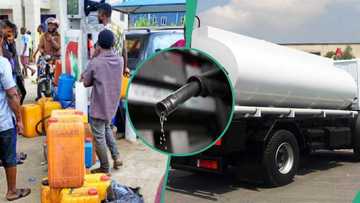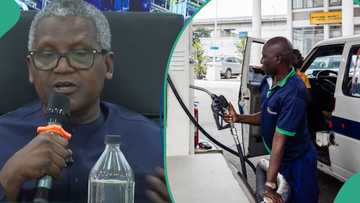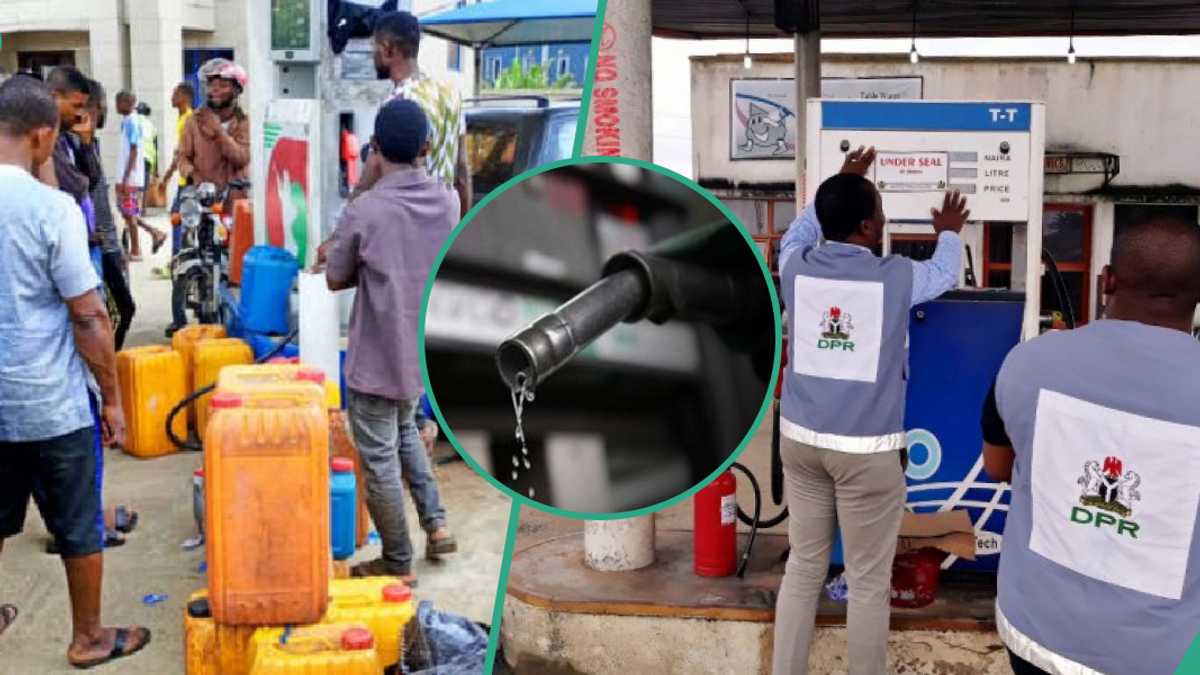Henzodaily.ng journalist Victor Enengedi has over a decade’s experience covering Energy, MSMEs, Technology and the Stock Market.
In the bustling streets of Lagos, petrol stations are a constant hub of activity, with drivers queuing to fuel their vehicles amid the ever-rising cost of living.
However, beneath the surface of these essential establishments lies a scam that exploits unsuspecting consumers—a scheme orchestrated by some petrol station attendants who tamper with pump metres to sell less fuel than paid for.
An energy consultant explained that rigged fuel pumps erode consumer trust and drive up inflation through higher operational costs.
Photo credit – Nigeria Info FM, NUPRC
Source: UGC
Following the removal of the fuel subsidy in May 2023, petrol prices have skyrocketed, tripling in cost and exacerbating the struggles of citizens who depend on petrol for their vehicles and generators amid persistent electricity supply issues.
Many Nigerians were relieved when, in December 2024, the Nigerian National Petroleum Company (NNPC) Limited and Dangote Refinery announced a reduction in petrol prices.
What should be a cause for celebration has instead become an opportunity for fuel stations to deceive and exploit motorists and consumers by selling a lesser quantity for the amount paid.

Read also
N500 per litre: Nigerian fuel prices on track to crash in 2025
John Adewale, a commercial driver, shared his frustration with Henzodaily.ng, accusing attendants of meter tampering, allegedly with the approval of their managers.
He said:
“I paid for 20 liters, but my fuel gauge didn’t reflect it. I suspected foul play and confronted the attendant. After much argument, they claimed it was my car’s fault. But when I tried another station, the gauge worked perfectly. It’s clear they’re shortchanging people.”
This practice, though not new, has taken on a more sophisticated guise. Attendants allegedly manipulate the pump’s calibration system, ensuring the display shows the full amount paid for while dispensing a lower quantity.
For consumers already grappling with high petrol prices, this deceit cuts deeper into their pockets.
Ngozi Chukwuma, a small business owner, shared her experience.
“As someone who uses a generator for my shop, I’m always buying petrol. One day, I noticed my jerry can was never full, even after paying for 10 litres. When I complained, the attendants insisted their pump was accurate. A friend later confirmed my suspicion, saying it’s a common trick.”

Read also
Experts break down factors that drove food inflation up In Nigeria in 2024
Lamenting the alleged fuel fraud, John Effiong, a Lagos-based barber told Henzodaily.ng of an experience he had with one of the filling stations.
He said that despite a recent reduction in petrol pump prices across filling stations, there was no obvious increase in the quantity purchased for the same amount.
Effiong said:
“I typically buy petrol for work using a 10-litre jerry can. When the price was N1,025 per litre, N10,000 worth of fuel would just about fill the can. However, after the price dropped to N925 per litre, I bought N10,000 worth of fuel with the same jerry can but, to my surprise, it still wasn’t enough to fill it.”
Industry experts warn of the broader implications of this scam. Dr. Kemi Ogundele, an economist and energy consultant, explained that rigged fuel pumps erode consumer trust, and drive up inflation through higher operational costs
Ogundele said:

Read also
Year in review: Dangote, PH Refineries PMS production: major events in Nigeria’s petroleum sector
“This malpractice erodes consumer confidence and fuels inflation indirectly. People spend more to get the same quantity of petrol, increasing their operational costs. Beyond the economic impact, it undermines ethical standards in the sector.”
While regulatory agencies like the Department of Petroleum Resources (DPR) have been active in monitoring and penalizing erring stations, enforcement remains a challenge.
Many stations operate with impunity, confident that the odds of getting caught are low. Reports of fines and temporary closures surface occasionally, but they often do little to deter the perpetrators.
To combat this issue, some consumers have resorted to personal vigilance. They measure fuel using containers with marked calibrations or compare quantities dispensed across different stations.
Speaking on the alleged malpractice by filling station operators, Wale Ogundeji, an energy analyst, told Henzodaily.ng that authorities must enhance enforcement, promote public awareness, and adopt technology-driven solutions to combat petrol pump fraud effectively.

Read also
Ugandan first class graduate who works at EV company speaks about his achievement
Ogundeji said:
“Despite these measures, the onus remains on authorities to intensify monitoring and enforcement. Public education campaigns can also play a pivotal role, equipping consumers with knowledge to detect and challenge fraudulent practices.
“Additionally, technology-driven solutions, such as tamper-proof fuel dispensers and real-time monitoring systems, could be game-changers in the fight against petrol pump scams.”
Indeed, the battle against this scam is far from over, but the resilience of ordinary citizens and the commitment of watchdogs could herald a future where integrity reigns supreme at the petrol pump.
Expert explains why fuel prices remain high
Meanwhile, Henzodaily.ng had earlier reported that Smart Opeyemi, an independent petroleum marketer, had broken down why Nigerians may not buy petrol for cheaper prices anytime soon.
His assertion contradicts previous optimism about the impact that the Dangote Refinery’s operations will have on the price of petrol in Nigeria.
He stated that a reduction in the importation of petrol would create local jobs and bring other social and economic benefits.
PAY ATTENTION: Сheck out news that is picked exactly for YOU ➡️ find the “Recommended for you” block on the home page and enjoy!
Source: Henzodaily.ng
